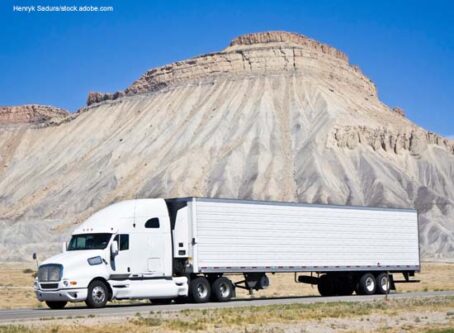California gets to try out Volvo electric trucks next year
Versions of the nearly silent, exhaust-free electric trucks that Volvo introduced this year in Europe are coming to North America in 2019.
California will fund a demonstration project aimed at proving the effectiveness of the trucks in fleet operations and in reducing carbon dioxide emissions, Volvo Trucks announced in a news release this week.
A broader North American commercial rollout is in the works for 2020.
Volvo is working with California’s South Coast Air Quality Management District on the Volvo LIGHTS (Low Impact Green Heavy Transport Solutions) project. There are 16 partners involved in the project working to transform freight operations at the facilities of two United States trucking fleets.
Funding comes from a $44.8 million grant preliminarily awarded by the California Air Resources Board to the South Coast Air Quality Management District. The South Coast Air Basin includes all of Orange County and the urban portions of Los Angeles, Riverside and San Bernardino counties. The district has 10,743 square miles and 16.8 million people, about half the population of the state of California, according to the South Coast Air Quality Management District website.
Volvo LIGHTS is part of California Climate Investments, a statewide initiative that uses cap-and-trade funds. California conducts quarterly auctions where companies can sell or purchase permits for carbon dioxide emissions as part of the state’s program to reduce greenhouse gases. The proceeds of the cap-and trade auctions are earmarked for public programs to slow climate change.
Volvo Trucks plans to deploy eight Class 8 electric demonstration units with gross vehicle weight of more than 15 tons and another 15 precommercial and commercial units in California’s South Coast Air Basin.


The range of a fully charged Volvo FL Electric truck can reach up to about 124 miles. The truck has three lithium-ion batteries. The truck could be equipped with up to six.
The vehicles will be based on the Volvo FE Electric, one of two Volvo Trucks introduced in May to European markets. Volvo invited media representatives, including one from Land Line, to test drive the vehicles in June in Sweden. The other electric truck introduced in the spring was the Volvo FL, which has a single electric motor, producing a maximum 370 kW of power, or just over 500 hp.
The Volvo FE is designed for heavier city distribution and refuse transport operations with gross weights of up to 27 tons. It has two motors, producing a maximum 370 kW of power, or just over 500 hp. It has a range up to 300 km (186 miles). The Volvo FE can carry up to six batteries, each weighing 1,100 pounds.
The trucks used in the California demonstration will have up to eight batteries.
In developing the commercial delivery and refuse collecting vehicles, Volvo Trucks drew on expertise of another division of Gothenburg, Sweden-based Volvo Group, sister company Volvo Buses, which has sold more than 4,000 electric buses since 2010.
In the California project, Volvo plans to employ several smart technologies to monitor all truck performance aspects of the project and maximize vehicle uptime, according to a news release from Volvo. Those technologies include remote diagnostics, geofencing and the Volvo’s web-based service management platform.
In addition to the trucks, Volvo plans to use battery-charging equipment not attached to the trucks, nonproprietary chargers and solar energy production equipment.
The project is expected to annually keep 3.57 tons of air pollutants and 3,020 tons of greenhouse gases out of the atmosphere.
Electric trucks will help improve air quality and reduce traffic noise, Volvo says. Also, electric trucks can help relieve traffic congestion during peak hours because delivery and pickup operations can be carried out quietly in early morning or late night.
“This is an excellent opportunity to show the end-to-end potential of electrification,” Peter Voorhoeve, president of Volvo Trucks North America, Greensboro, N.C., said in a news release. “From solar energy harvesting at our customer locations, to electric vehicle uptime services, to potential second uses for batteries, this project will provide invaluable experience and data for the whole value chain.”
Volvo also introduced in mid-September a commercial vehicle it calls Vera. It is a driverless, autonomous, electric vehicle that can operate with significantly fewer exhaust emissions and low noise levels.









